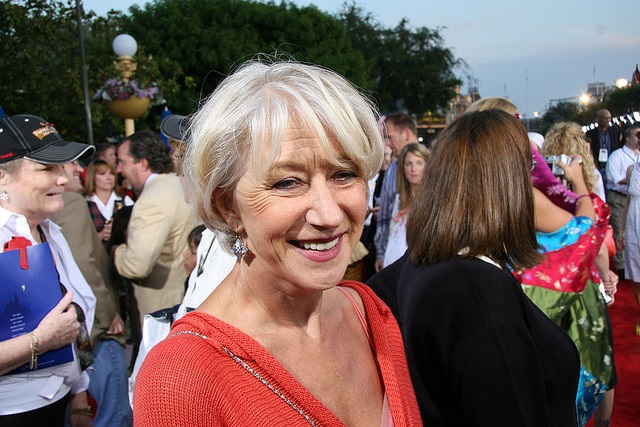
Photo: Anne (CC BY-NC-ND 2.0)
Another class struggle?
Many agree that we are not doing enough to support working-class actors as they start out in their chosen career. But Anna Campbell has a controversial idea for a solution.
When people like Helen Mirren and Ian McKellen have the same thing to say about the acting industry, it’s probably worth listening carefully. Both feel that actors are becoming more upper class, with the working class losing their space in theatre, film and TV. Ian McKellen has called for a living wage for actors, while Helen Mirren is worried about acting becoming a profession open only to the rich.
With their knowledge of the industry, and actors like Eddie Redmayne and Benedict Cumberbatch going from success to success, it is hard not to agree that the upper classes certainly are not struggling in the industry. While it’s nice to think that the best actors will win out no matter what, as with many areas of life, money often gives you an edge. That’s not to say that a casting director will be looking for an actor with the biggest bank balance. Being rich is not a substitution for talent, but it is what money can do for us in our formative years that makes the difference.
While it’s nice to think that the best actors will win out no matter what, as with many areas of life, money often gives you an edge
For a start, unless you are incredibly lucky, a career in acting does not begin with well-paid roles in the biggest TV shows. You often have to support yourself with a regular job as you try to make your way up the ladder. That is unless you have someone (your parents) willing and able to dole out cash till you get your big break. Like a lot of creative industries, you won’t be walking into well-paid work as soon as you finish your training. Years and years of balancing your career with a job in a pub is enough to put anyone off. How much easier a life dedicated to acting becomes when money is not an issue. It is practically an impossibility for those with dependents, such as single parents.
Then there’s the training itself. Whether it’s university or a drama or acting school, the costs are huge. Tuition fees cost £27,000 for three years and that’s a debt that those already with little will be hard pressed to take on. This is not unique to acting, but when you know things won’t be easy even with a degree, it just adds to the troubles. You could argue that training isn’t essential. That’s right, but it does impart a certain amount of knowledge and experience that, when coupled with talent, can lead to great things. It’s hard to argue that Redmayne’s access to Eton’s 400-seat, professional-standard theatre didn’t aid him in some way. That’s the kind of help that is usually out of reach of the working class.
It’s also worth mentioning the connections you gain from certain educational establishments. They can be a great way to meet people in the industry or those who will go on to do well in the industry. As it is with the music industry, who you know is just as important as what you know. Getting access to these connections is always going to be harder for the working class and this will only worsen if acting circles become more upper class.
The recent recession has not helped either as the gap between rich and poor has widened, while government cuts have meant that there’s less money available to help aspiring actors. The charity IdeasTap has also had to close (although it may still survive if enough support is found), destroying a great lifeline to those without a lot of money behind them. In other words, the resources available to help those with little money are dwindling and little has been done to fix it. The government could put funds into supporting actors, but it would be at the detriment to others. What about the musicians, the writers, the carpenters, the painters, the coders, and everyone else?
There may be a solution though, albeit a controversial one. We have to go back to those who raised the issue in the first place. A tax could be created that applies to certain fields. People or institutions who earn over a certain amount in a said field could be taxed extra with the money gained dedicated to helping the less fortunate. With millions being raked in each year by the West End alone, no one can argue acting doesn’t generate the money it needs to support those who wish to act.
Surely Ian McKellen and Helen Mirren would be willing to accept a slightly smaller pay packet to support those who they champion? It might not be a popular option, but with the majority of the country cash-strapped how else can we foot the bill but by taking it from the ones who still have cash to burn?
Anna Campbell writes about the arts.
Tw @AnnaTheExplorer
E [email protected]
Join the Discussion
You must be logged in to post a comment.